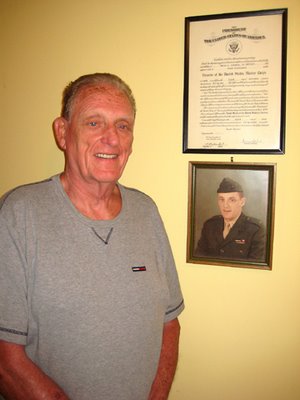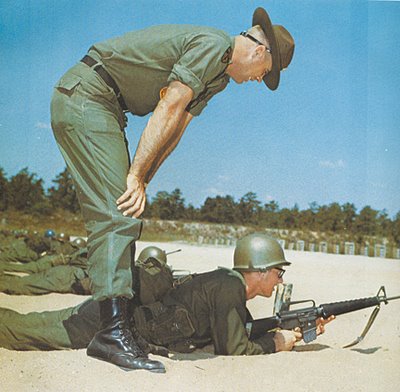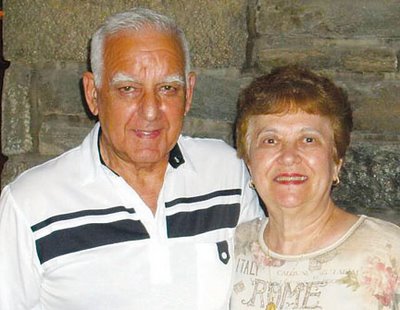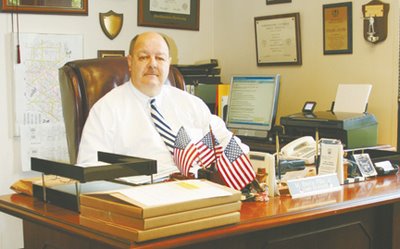Richard W. Gresko
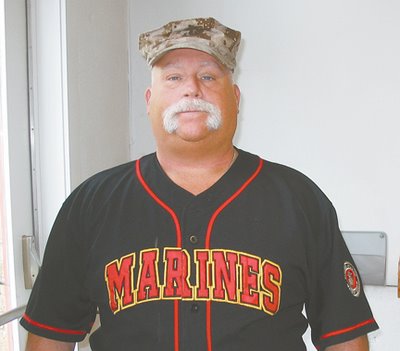
Having served during the Vietnam War, U.S. Marine Sgt. Richard W. Gresko of Newtown received the U.S. Navy Cross for throwing his body onto a North Vietnamese hand grenade. His action was an attempt to save the lives of three of his comrades.
Gresko, originally from Philadelphia, was 19 at the time of his heroic act. He was on a nighttime ambush on March 11, 1970 in Vietnam. Absorbing the impact of the explosion, Gresko somehow survived. He sustained life-threatening wounds to his legs and torso. Today, he has chronic neurological problems because of the grenade blast.
“I believe that the action I did that night — if it had been another Marine with the exact same thing, I think they would do the same thing. That action I did that night I did to protect the men. Believe me, you know what you’re doing. I did it to save my men.
“I’m here by the grace of God, Jesus. I did what I did. I guess I shouldn’t be here, but I am,” he said.
“If I had it to do all over again, I would do it all over again,” he said. “Sometimes the whole is more important than the one. That says everything.”
That goes not just for Marines, he asserted. “Not just Marines die, a lot of people do things to protect people. I love the country.”
It was tough in the hospital. “There were so many of us back then,” he said. “When I first got there, I was in the hallway. A lot of us were on gurneys. The wards were so full. I didn’t know that — Katey told me.”
Gresko said one of the best things he ever did was to marry Katey on March 29 1969. When Gresko came home wounded, she went to the hospital every day.
Though there were a lot of suffering soldiers in the hospital, they stuck together. “We call it esprit du coeur - it’s very tight comradeship. The highest compliment is to say you have that drive. Everybody thinks alike and everybody looks out for each other,” he said.
Discharged in June 1971, Gresko was in the Philadelphia Naval Hospital for 15 long months.
A big burly man with a raspy voice, Gresko limps and uses a cane. He laughs when he won’t divulge is age. His personality is a bit gruff, but humorous. There’s always a joke when he talks.
The fact that he saved his buddies’ lives is a major part of his life. Respect and love for his comrades has helped him cope with his injuries.
Gresko had been in the 1st Marines division, 3rd battalion, 5th regimen and India Company, 3rd platoon. “I was a rifleman. We called them grunts. Then a special unit was formed. There’s a unit called combined action platoon (CAP). What their job was — they would fence in the villages at night with barbed wire.
“Everything is around the village. It’s community.”
The Marines would go out with them to farm. “They were peasants. All they wanted to do was farm — to be free — not what we know as freedom, but what they knew was their freedom.” Gresko said the enemy was “really brutal.”
The villagers worked hard out in the rice patties. If there were rivers near them, they went fishing.
“I believe that a person should be free,” Gresko said. “I believe when I was in Vietnam, I was visiting. I was protecting them.
“We lived with the people,” Gresko continued. “You respect the elders and the religious shrines. We were CUP — combined unit pacification program. I was still with the 1st Marines Division. We had two or three villages.”
The villagers trained with the company. “We’d set up ambushes — killer teams with sometimes four or five,” Gresko noted. “If you have an ambush, they come to your aid. We’re in support of each other. There was no artillery fire — no air support. We could get choppers and medevacs.”
People working with them, who gave the Marines information, were on the hit list. “They went after them. Our job was to protect them and work with them. Sometimes you trained your enemy. They don’t hang a sign around their necks,” Gresko said.
When asked if he has any stories to tell, Gresko talked about being in the Highlands. “We couldn’t get re-supplied during the monsoon. It was about two days that we did without. It was so cold. (You would) wrap up together. You ate out of a box. Rations had a can full of peanut butter. It’s real small.
“For two days, we opened it up,” he recalled. “We each took a finger tip amount. We split that for two days. Now, that’s pretty outstanding.”
 RSS Feeds
RSS Feeds



